Community Engagement Spotlight: Skylar Fetter
Skylar was raised in a tiny town on the edge of the Akwesasne reserve. She is a Kanien’keha:ka scholar and second-year master's student in the Environmental Humanities program at the University of Utah. She completed her undergraduate degree at Columbia University in the spring of 2021 where she was a member of the Native American Council, the Columbia Outdoor Orientation Program, and the Research Cluster on Science and Subjectivity.
Her work examines issues of contamination and remediation policy in freshwater systems in the Kaniatarowanenneh/St. Lawrence River watershed. It centers indigenous women's methods of resistance while seeking new opportunities for tribally led remediation and environmental policy. Her path to this pursuit of study has not been linear but a collective endeavor of interdependent and interdisciplinary learning guided by her community, family, and friends, and is ever-evolving. While she still misses the familiar rush of the Kaniatarowanenneh and her community back east, she is excited to do work here in Utah where so many of these issues converge.
In December I interviewed Skylar about her thesis and engagement with the Akwesasne Nation.
Fiona: Well, first, I wanted to say thanks for meeting with me.
Skylar: Thank you.
Fiona: Maybe introduce yourself, your background, and what is your relationship to the Akwesasne Nation.
Skylar: So I'm Skylar. I don't know how much, like, yeah, background you need, but I grew up in Northern New York, so it's fifteen, twenty minutes from Akwesasne. My grandmother and my aunts all lived in Akwesasne for most of their lives. And so, we'd go home all the time to visit them. They lived on the island in between... Borders are complicated, but from, a state view, they lived in between, the Canadian and US border, but technically within the limits of Canada.
There are a lot of bureaucratic regulations to deal with, but we went there quite a bit. And the North Country, which is what we call everything above the Adirondacks outside in New York, it's really small. So, you feel immersed in many communities, I think, just by nature of how small the communities are, even though the land is very big. I grew up there, really small town of, like, under two thousand people. I was a kid who was like, oh, I need to go to the city, or whatever.
So, I went to New York and I went to Columbia for my undergrad. It was a really meaningful experience and it kind of made me miss home a lot, though, in a way that I didn't realize I would before leaving. And then the pandemic hit, and I returned anyway. And it actually ended up being a really important time to reposition myself in the community after being away for two years, which felt like a really long time to me back then. But when I was there, I spent a lot of time in the outdoors, in the Adirondacks, and on the St. Lawrence.
Just being outside in any way possible was important during the pandemic, I think, for almost everyone. But the small nature of the North Country afforded a lot of opportunity for that, which is important to me. And so, when I finished Columbia, I realized I wanted to figure out a way to integrate that environmental love and childhood foundation in the outdoors into my work. And I also knew that I wanted to go back home eventually and do work with my community in Akwesasne and kind of pay tribute to the legacy of my grandparents, my Tota, and her and her mother, and my father who does a lot of storytelling.
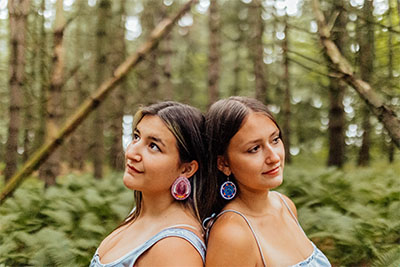
Fiona: Can you talk about your thesis work and how you came to this work, or what is the importance of your research to your Nation and community?
Skylar: Yeah. So, I came into this program knowing I wanted to do work on the Superfund sites and contamination in Akwesasne. And that's a big topic in my community. It's been generations of people impacted by industrial waste dumping from, some pretty large corporations on or bordering the community in different ways.
My Tota, my grandmother, and her mother Anna, grew up on the island of Kawehno:ke, which, was really in the crosshairs of some pretty big corporations who were on both sides, the Canadian and the US side, who were kind of operating without environmental consciousness, at least, not publicly. For decades. And the consequences of that really impacted my family. My Tota and I and her mother talked about the way that the landscape was changed by the construction in St. Lawrence Seaway and then how that brought in these big organizations. So, you kind of grow up hearing about the way things were before.
And that's a really common trope. My grandmother, my Tota, died pretty young of cancer. So, you see the consequences when a lot of people on the rez are having health issues and implications at much higher rates than the surrounding populations or the national average. You start to wonder what is going on.
So that was always a driving motivation in continued studies, and I always thought about maybe going to law school. And that's something I'm not ruling out now but growing up hearing my dad talk and my grandparents and my mother you know, story is embedded in who we are. And as you can tell, even by this interview, we talk a lot. And that is imperative to kind of forward progression or healing in a community.
The humanities part of the thesis became more apparent to me as I thought more about how I could add to the work that's already being done in the community and best utilize my strengths. So I spent the summer back home working for St. Regis Environmental Division there as a student researcher under the remediation restoration department with Jessica Jock, who is the director of that department. And it was the most incredible experience just being back home in the community and seeing the work firsthand.
I mean, the environmental division is nationally known. People look to Akwesasne for environmental guidance in Indian country. I feel so privileged to have had that experience. And reading through a lot of the archive materials this summer, the Grasse River site really stood out to me as being one that the community is really focused on and the recent failure of the remediation cap demonstrated a need for further study.
I knew that there would be a way to highlight the failed promises that a lot of the remediation policies have offered to the community. So, I spent the summer doing interviews and working with community leaders. And the Grass River is a site that I grew up on and have family who lives there on both sides of my family. I should have clarified this earlier, but it is a superfund site, meaning it's been deemed a federally recognized site that needs remediation based on pollutants.
The Grasse River was specifically polluted by Alcoa, an aluminum manufacturer. It's a very big name in manufacturing in the US, and they dumped PCBs, a known carcinogen, into the river for so long and at such a high rate that the river has an indefinite, no fishing advisory. It's gonna be generations of damage from the amount of PCBs that were put into the river by Alcoa.
Alcoa, starting in the eighties, was mandated to issue a report, figure out remedies and alternative remedies for the contamination, and then be fiscally responsible for that cleanup. And the tribe was involved in this and so was the New York State Department of Conservation. My research looks at how, The EPA, who is the lead on the Superfund site has attempted to or failed to attempt to integrate tribal voices into this remediation and in what ways the prioritization of Alcoa, specifically their economics needs, have been upheld in opposition. It's hoping to kind of bridge an environmental policy, Federal Indian Law perspective, with a community-led and culturally guided remediation strategy.
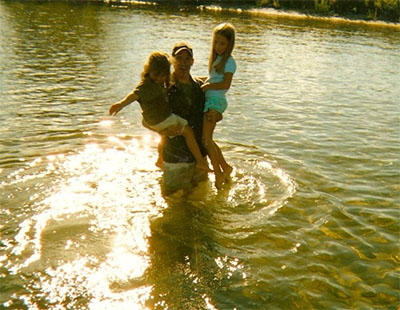
Fiona: Who are you interviewing for this information?
Skylar: So I've been lucky to work with some incredible people.
In Akwesasne, we have a lot of wonderful people in the tribal environmental division. I also interviewed a lot of women in the community because the main focus of my thesis is women. Katsi Cook, who's a midwife in Akwesasne, is responsible for a lot of the environmental work that's been done since the eighties and even before.
She always says that women are the first environment. So that's been a guiding perspective in my thesis . I’ve also spoken with a couple of other women who were doing that kind of firsthand PCB testing working between researchers and community members. I’m just trying to get as broad of a perspective as I can in the community and also recognizing that it's only, a master's thesis, so the scope has to be somewhat limited. And having, the dozens of interviews I'd like to have included. It's just not possible for this thesis, which has been tough.
I think this is a tribute to the work that is already being done there. I feel like if anything, I'm just, creating maybe, like, a collection of these perspectives and pointing to some issues in in environmental policy. Even this compilation of research that I'm doing now feels small in terms of the absolute plethora of work that's already ongoing.
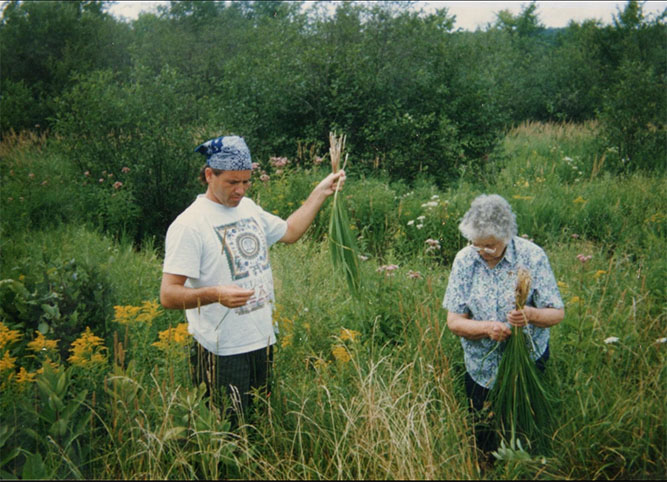
Fiona: That’s great! How were you able to make these relationships, and how do you think that maybe was different because you are coming from the community?
Skylar: Indigenous research is always really complicated given a history of violence and extractive research in the community. And that's been true of Akwesasne I think, as much as any other reservation.
I think coming in with pretty close relations on my dad's side who have experienced the environmental contamination firsthand was an important perspective because it is guided by familial importance. I think, and I believe this is true for most Indigenous scholars, that you would rather not publish anything than publish something that is offensive or is not respected by your community.
And you don't wanna let your family members down. So, I think coming in with that was important. And I grew up off rez, so that's another, you know, important piece of my identity that I have to be conscious of.
So when I interview elders or community members who are leading this effort, I prioritize their perspective in many cases over mine. So just being conscious of that distinction and working to honor that in an appropriate way. I think that has been a huge, huge part of my research methodology.
The people I work with in Akwesasne, they're leaders in their field, and that's so clear. So it makes sense to go into any interview just being humbled by the amount of work that they've done and the kind of knowledge that they're presenting with.
Growing up in the North Country, it's a small place and so everyone knows everyone or knows someone who knows someone. I think just coming in with those connections and those interpersonal relationships just cements the fact that I'm doing this out of community care with the guidance of people who have lived in this community for generations.
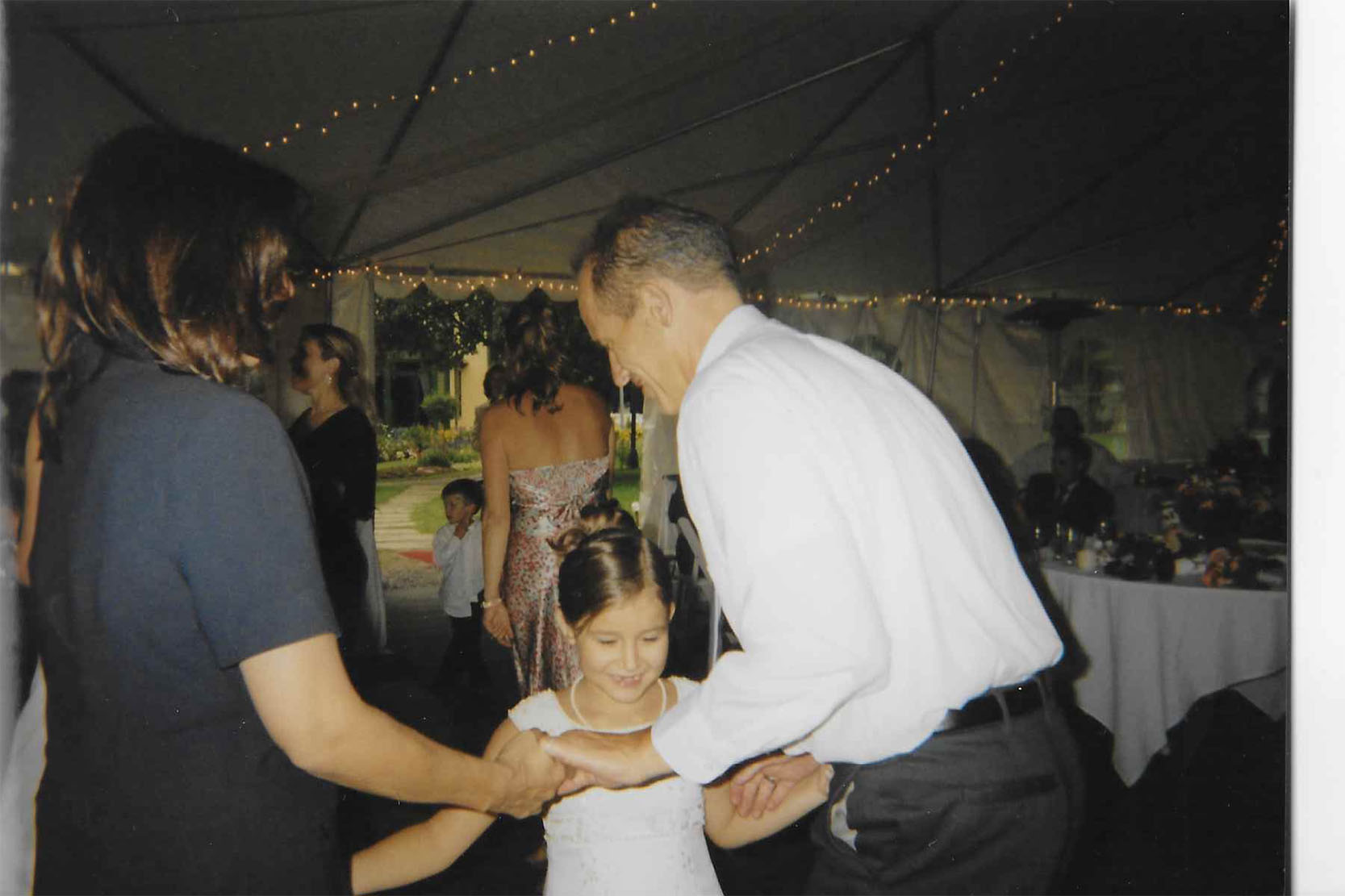
Fiona: I'm gonna, transition a little bit. You work in the Tanner Humanities Center, how has this opportunity contributed to your academic and research experience? Are there specific resources or opportunities provided by the center that have been helpful?
Skylar: It's been a great experience. The Tanner Humanities Center is a great place to work and to be involved with. They bring some of the most incredible speakers and events to campus. And I think that's been super beneficial for my time in Utah. I think in academia it can feel like you’re kind of trudging through the work that you started out very passionate about. But then to be in conversation with these incredible speakers like Joy Harjo, and all the other speakers they brought, is a real point of motivation during the semester that can feel belabored. And they're bringing Kyle Whyte and Robin Wall Kimmerer.
I can't speak highly enough of the of the center and the staff who work there. It's just been a collection of people who really care about the Humanities and really want to bring challenging and productive speakers to Utah. And that has fed into my work and made me reassert where my work fits within the Humanities and within a larger academic tradition. Especially because these speakers kinda push the boundaries of what academia considers to be academic.
Fiona: Over the summer, you were an Indigenous Writer in Residence at Cranberry Lake Biological Station. What did your time look like there, and how has it impacted you as a writer?
Skylar: It was awesome. I feel so lucky to have been there for three weeks. Like I said, I spent a long time in the Adirondacks growing up, and especially during the pandemic, and Cranberry Lake is a really special place. The staff there is wonderful and there's a lot of undergrads there at the same time doing really exciting work.
So it just felt like a really productive place, but also one where I found a lot of, rest during a summer that was pretty intense. I spent a lot of time there just reading. I read a lot more than I have read in the rest of my graduate career or maybe even undergraduate career, and that was really important because I think it's hard to read in a relaxing sense when so much of graduate school is reading for class.
So this was a good break from that. And then that reading really influenced my work, so I wrote a lot there. I wrote a lot about my my grandparents and their connection to the island and the St. Lawrence in general and the dredging of the river. So things that I've always been thinking about and thinking about especially even more in my thesis, but thinking about it in this more, personal narrative sense.
And that was really, I think, important because I've never considered myself a writer, which sounds silly, but before the residency, I would have never called myself a writer.
My dad, he would not call himself a writer either, I think, but I grew up reading his writing. And even just listening to his stories, and same with like my grandparents, even my mom. My mom was an English teacher. I come from a family of educators who know the power of narrative is really important, and how you communicate that narrative is even more important.
So, I think this summer was a chance for me to really feel comfortable in that role and feel confident in saying, “Oh, I'm a writer”. And then even being in the presence of someone like Robin Wall Kimmerer is just so inspiring, and I feel very grateful for that. She is just as incredible as you think she might be when reading her book. I mean, she's great.
The Tanner Humanities Center is bringing her in the Spring again, it just feels like all these connections that transcend space, which is really interesting, especially when doing localized work. You can still see those bigger webs of connectivity reaching out beyond, which I think has been a really special part of my time across the country.
Fiona: I'm glad that you do feel that connection despite the miles in between. Do you think you'll include any of those personal narratives in your thesis?
Skylar: Yeah. I think it's really important that Indigenous scholarship situates the reader within the research.
And I have this pretty strong familial background and reasoning for getting into my thesis about contamination in Akwesasne so I guess that’s important to establish first and foremost. The word for grandmother in Mohawk is Tota and my great grandmother, my Tota's mother, we just thought of her as our old grandmother. So, I grew up calling her old Tota. She lived such a long time, until she was 108. My Tota died before her, so I felt really close to her. And so, she has to be in my thesis. She is the reason I do this work and it's with their words in mind that I hope to kind of continue on with any kind of academic or community-based research.
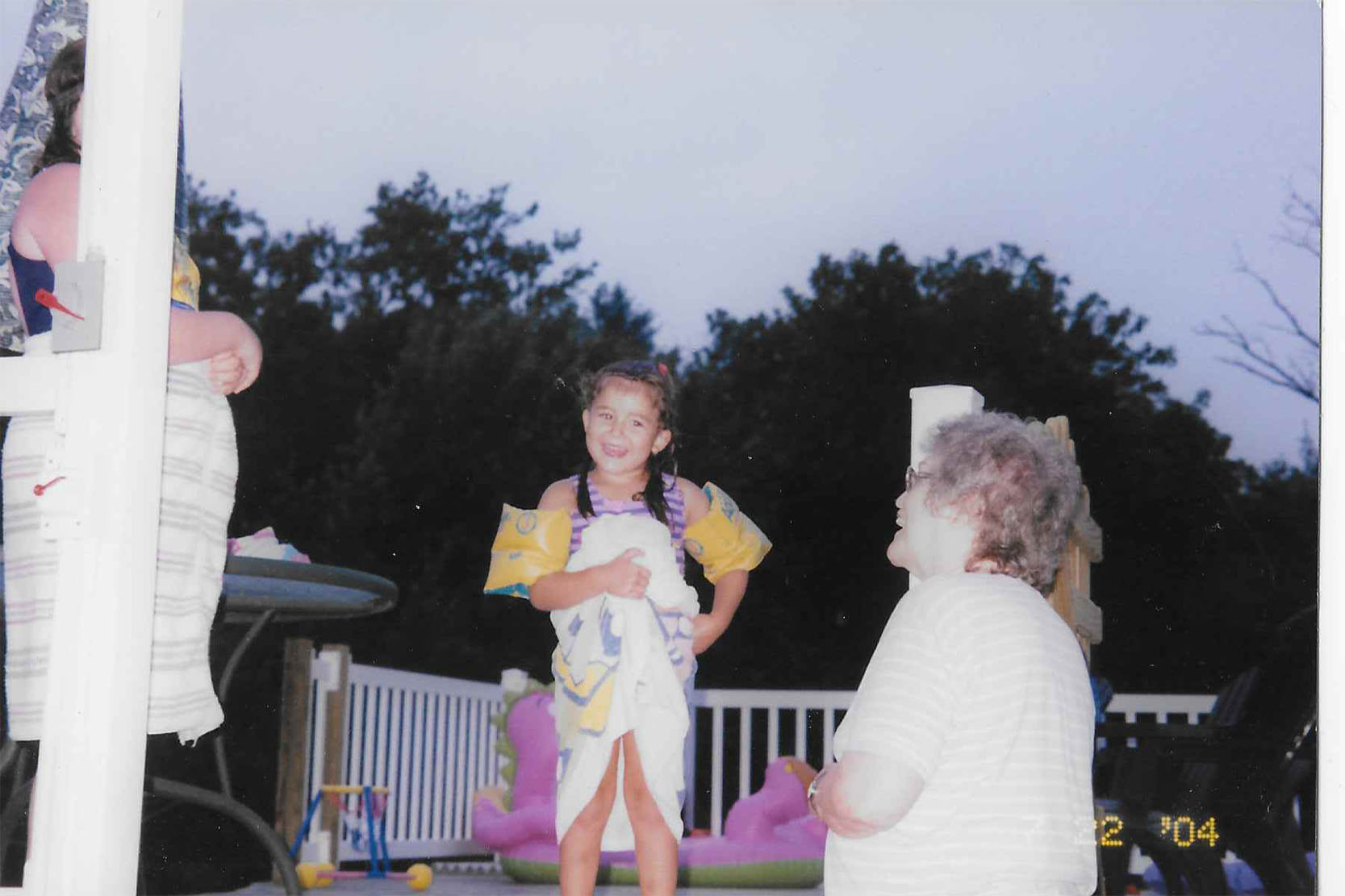
Fiona: Well, you're graduating soon do you have plans for after you graduate from the environmental humanities program?
Skylar: Yeah. So I’ve applied a bunch of PhDs now.
Hopefully, something works out there. I also haven't ruled out law school, but I'm definitely continuing the research forward in some academic capacity. Looking for opportunities to spend my summers back home. Eventually, I wanna go back to Akwesasne, at least for my summers.
I love school, which, I think is one of the most embarrassing things to say. So I can't imagine a time when I'm not doing some kind of, you know, academic work. And I really feel grateful to, you know, have a lot of mentors like, you know, Kyle Whyte and Brett Clark. And all the people who I see doing work that is, really interesting.
And so now it's kind of a waiting game to see where I land and what opportunities best allow me to serve my community and return home.
Fiona: Wonderful. I wish you the best of luck with that. Is there anything else that would like to share?
Skylar: I mean, thank you so much. Thank you for letting me talk to you for like forever. It's a common joke in my family you know, my dad and his brothers and everyone's like, they're gonna talk, if you ask them to talk, they're gonna talk. So thank you.
Fiona: Well, thank you for sharing!
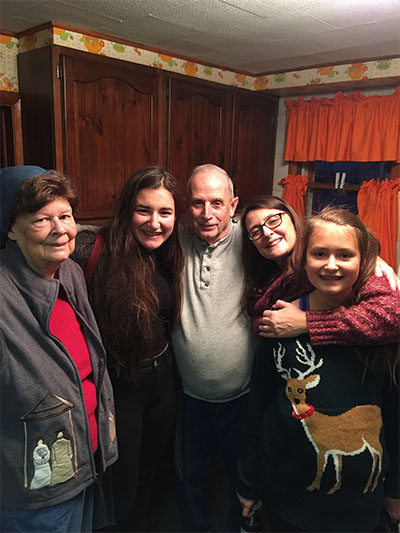
Categories
Featured Posts
Tag Cloud
- community engagement (15)
- student (4)
- nuclear energy (1)
- community practitioner in residence (2)
- practitioner-in-residence (3)
- student spotlight (1)
- Great Salt Lake (1)
- art (1)
- activism (1)
- faculty (4)
- education (1)
- alumni (3)
- environmental literature (1)
- EH research professor (1)
- utah award in the environmental humanities (1)
- indigenous sovereignty (1)
- activist (1)
- downwinder (1)
- staff (1)
- students (2)
- thesis (2)
- project (2)
- exam (1)
- Native research methods (1)
- 1U4U (1)
- graduation (1)
- research (1)
- event (1)
- youth activism (1)
